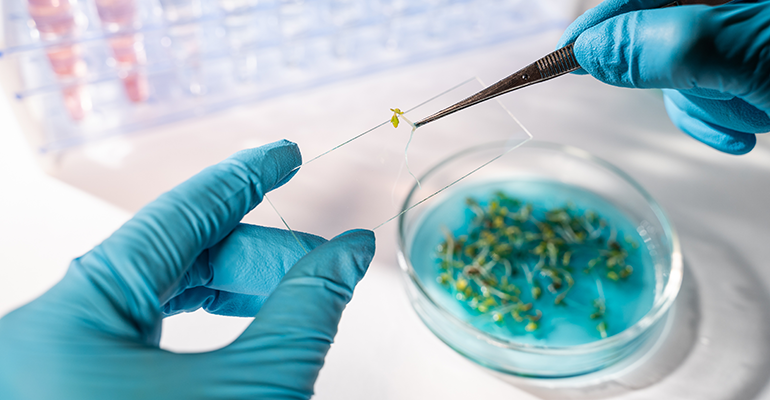News
Canada rules that gene-edited crops are not GM
5 May 2023
The Canadian government has announced gene-edited seeds and plant materials will be not classified as genetically modified (GM) but considered as conventional, prompting both support and condemnation from different agri-food actors.
On 3 May, Canada’s minister of agriculture and agri-food, Marie-Claude Bibeau, that the Canadian Food Inspection Agency (CFIA) would go ahead with updated guidance for Part V of the country’s Seeds Regulations. According to these changes, which have been under consultation since 2021, gene-edited plant materials will not be classified as GM.

Gene editing, also known as genome editing, is a group of technologies through which genetic material is added, removed, or altered at particular locations in the native genome. Genetic modification involves introducing genetic material from a foreign organism.
“Plant breeding innovations allow new plant varieties to be developed more effectively and efficiently than through conventional breeding,” read a government statement. “This can benefit farmers and consumers by providing them with access to plants and seeds that are both safe for humans, animals, and the environment. These varieties can also be more resistant to extreme temperature, precipitation, and insects, helping us adapt to climate change, feed a growing population and keep food costs down for consumers.”
The government said it would also strengthen transparency measures for products of plant breeding innovation and invest in the Canadian organic standards to protect the integrity of the organic sector. Organic farmers may use conventional seeds but not gene-edited seeds.
Grains Council: ‘Helping Canada stay competitive on the global stage’
The announcement was welcomed by trade association, the Canada Grains Council, which said it would help Canada stay competitive on the global stage.
Krista Thomas, vice president of seed innovation for the Canada Grains Council, said: “Many of our trading partners have already adopted similar science-based policies, and farmers outside of Canada have been growing gene edited crops since 2015. When we let the science be the core of regulatory decision making, we know that the end result can be trusted and is safe.”
Rick White, chair of the Canada Grains Council, said that gene-edited crops could help farmers adapt to changing climate conditions and pest pressures.
Opponents denounce the removal of corporate science safety checks
However, other groups opposed the new requirements. The Canadian Biotechnology Action Network (CBAN), a network of 15 groups opposed to GM, condemned the announcement, saying the federal government has allowed biotechnology companies free reign in the food system, removed safety checks on corporate science, and denied transparency to farmers and food companies.
“These genetically modified organisms will not go through any government approval process at Health Canada or the [Canadian Food Inspection Agency] CFIA but can be released onto the market by companies without any safety data submitted to the government. These GMOs can also be released without notifying the government or public,” said the CBAN.
“The result will be unknown GM foods and seeds on the market that have not be subject to any independent safety assessment.”
The Grains Council noted that 58 organisations representing over 190,000 Canadian farmers and actors in the grain and horticulture supply chain – such as BASF, Syngenta, and Bayer – had sent an open letter to the Prime Minister Justin Trudeau in January this year, “demonstrating the broad agriculture community’s support for the publication of CFIA’s guidance on plant breeding innovation”.
EU Court exemption for certain forms of mutagenesis
In 2018, the EU ruled that all gene-edited plants must be regulated through the European Union's GMO regime.
However, in February this year, the Court of Justice of the European Union (CJEU) allowed an exemption. It ruled that organisms obtained by the in vitro application of mutagenesis that has conventionally been used in a number of in vivo applications and has a long safety record are excluded from EU laws that restrict the use of GM.
